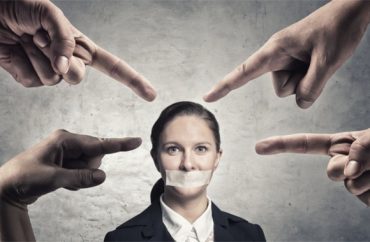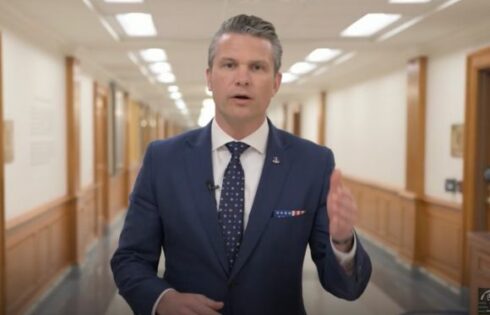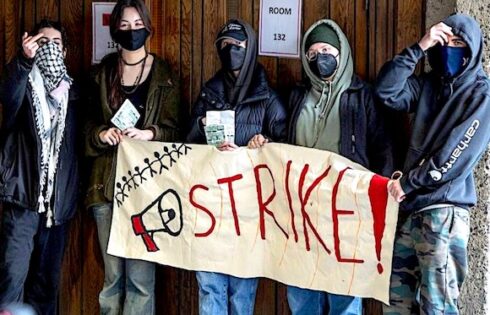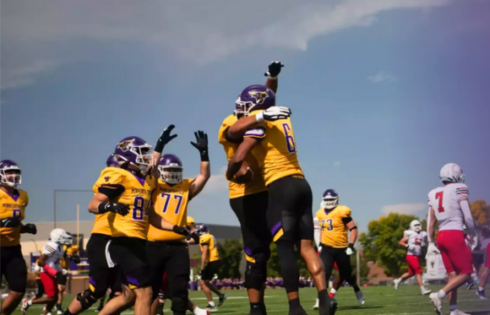
Amherst College president quickly rescinds document after publication
Amherst College’s Office of Diversity and Inclusion last week issued a 40-page glossary of terms officials said they had created to spell out a common agreement on how to define words and phrases often used at the small liberal arts campus.
The “Common Language Guide,” emailed to the roughly 1,900 undergrads at the private college, broke down pages of terms under categories such as “isms,” “race and ethnicity, “gender identity,” “class,” “politics and policy,” “global power and inequality” and “disability.”
“This project emerged out of a need to come to a common and shared understanding of language in order to foster opportunities for community building and effective communication within and across difference,” the guide states.
Within a day, the school quickly rescinded the document, replacing it on the Amherst website with a statement from college President Biddy Martin claiming she had no prior knowledge that the guide was going to be drafted and circulated.
“The ‘Common Language Document’ produced by the Office of Diversity and Inclusion and circulated yesterday at Amherst takes a very problematic approach,” Martin stated.
“When the approach assumes campus-wide agreement about the meaning of terms and about social, economic, and political matters, it runs counter to the core academic values of freedom of thought and expression,” wrote the president of Amherst, a school where tuition, room and board runs nearly $73,000 per year.
The incident took place one day before President Donald Trump signed an executive order that pledged to punish colleges and universities for censoring students.
The Amherst Office of Diversity and Inclusion did not respond to a request from The College Fix on Friday seeking comment.
The College Fix has obtained a copy of the Common Language Guide.
The document defines “capitalism” as an economic system that “leads to exploitative labor practices, which affect marginalized groups disproportionately.” It criticizes white feminists, declaring “white feminism” is “predicated upon the erasure of women of color and the ways in which racism and sexism converge and compound one another.”
The Common Language Document also derides use of the term “equality.”
“An equality emphasis often ignores historical and structural factors that benefit some social groups/communities and harm other social groups/communities,” the document reads, seeming to dissuade students from treating each other equally.
According to the document, “race” is a “social construction (not a biological phenomenon) developed by European (white) scientists intended to rank humans based on perceived biological differences rooted in appearance, skin tone and ancestral homelands.” The entry explains the “idea of race is intricately linked with the practice of white supremacy, which continues to have damaging impacts on communities of color globally.”
The guide includes terms regarding sexuality, including the definition of a “packer,” explained as “a phallic object worn in the underwear to give the appearance of having a penis. Packers range from padded forms to rolled-up socks to prosthetics. They are most often used by trans men or masculine-presenting people who were not assigned-male-at-birth.”
The speech code also frowned on discussion of “biological determinism,” defined as the “idea that all human behavior is innate, determined by biology.”
“Biological determinism has been used to oppress marginalized groups (e.g. as a justification for slavery, the displacement and genocide of native populations, and denying women’s suffrage) using biased science,” reads the document. “It has been associated with scientific racism, eugenics and the maintenance of strict gender roles.”
Thus, it stands to reason any student who believes in innate differences between males and females and how those differences might alter their life choices could have been running afoul of campus ideological policy had the document not been rescinded.
Brantley Mayers of the Amherst College Republicans told The College Fix via email on Friday that the speech document “hints at an overwhelming liberal bias on campus.”
“I do not believe there is any formal discrimination present,” said Mayers, “but an atmosphere that is hostile towards Conservative thought is prevalent on campus. Many of our members, as well as others throughout the college, fear retribution for proclaiming their opinions.”
“We are working to create events that will enhance the dialogue among all viewpoints on campus, as we find this is the best way to both come to a better understanding of those we disagree with as well as better the learning environment for all,” he said.
Even though the document has been officially rescinded by the university, students may face repercussions for using language that other campus members deem “biased” or “hateful.”
The campus features a “community standards reporting” system which allows students and faculty to file anonymous reports against other campus community members for alleged incidents of “bias.” These incidents could include use of words frowned on by the university’s diversity office.
Some other terms defined by the Common Language Guide:
“Homonationalism” – A concept introduced by Jasbir K. Puar to name the political deployments of certain kinds of LGBTQ+ people in the service of U.S. nationalist and imperialist agendas. Used to explain the ways in which cis-gay and lesbian veterans of the Iraq War were celebrated as proof of American exceptionalism in contrast to racist/orientalist discourse about Iraqi combatants and other people in Central Asia racialized outside of U.S. understandings of whiteness.
“Heterosexism” – A pervasive system of beliefs and practices that manifest across societal/cultural, institutional and individual domains that centers and normalizes heterosexuality. Enacts violence against all other sexualities through their erasure, pathologization and invalidation. Provides various advantages to heterosexual/straight folks.
“Exoticism” – The representation of another cultural group as mysterious, exciting and radically different from one’s own. This is particularly common in the context of power imbalance and results in a distorted, exaggerated or essentialized understanding of the exoticized group.
“Misogynoir” – A term coined by black queer feminist scholar Moya Bailey to describe the specific way anti-black racism and misogyny work together to oppress black women. Similarly, transmisogynoir refers to the experiences of racialized misogyny towards black trans women. Transmisogynoir and misogynoir can be perpetuated by anyone, though it can only be experienced by black women.
“Reverse Oppression” – There is no such thing as reverse oppression. Oppression is predicated upon access to institutional power. Marginalized communities do not have access to institutional power. For example, women can be as prejudiced as men, but women cannot be “just as sexist as men,” because they do not hold political, economic and institutional power.
“Cissexism” – The system of belief that cisgender individuals are the privileged class and are more natural, normal or acceptable than transgender, genderqueer, nonbinary and/or gender-nonconforming people. This belief manifests as the systematic denial of rights to trans and nonbinary people and their routine mistreatment.
“Ableism” – The system of beliefs and practices that perpetuate institutional, structural and individual limitations and violences against disabled folks/people with disabilities in physical, sociopolitical and economic environments.
“Women of Color” – Political term coined by, and intended to connect and build solidarity amongst, self-identified racially minoritized women. This term has undergone many variations including “people of color” “queer/trans people of color” (QTPOC), “youth of color,” and (commonly heard on campuses across the country) “students of color” and “faculty/staff of color.”
“Fragile masculinity” – A state of requiring affirmation of one’s masculinity and manhood in order to feel power and dominance. Rooted in sexism, heterosexism and misogyny, fragile masculinity is the fear of being associated with femininity and queerness, or any traits that oppose those which are socially constructed as masculine. For example, men being hesitant to cry is an example of fragile masculinity.
Note: The intent of these terms is not to erase the unique individual experiences of people and specific racial/ethnic groups but rather to build solidarity amongst various communities experiencing oppression under white supremacy. [Emphasis in the original document.]
Read the full document here.
MORE: Amherst College offers free menstrual products for ‘students who menstruate’
IMAGE: Shutterstock
Like The College Fix on Facebook / Follow us on Twitter






Please join the conversation about our stories on Facebook, Twitter, Instagram, Reddit, MeWe, Rumble, Gab, Minds and Gettr.